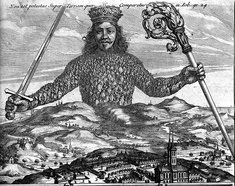|
Question or Term
|
Answer
|
|
The subjective declaration and claim of how things ought to be and what is good, bad, right, or wrong
|
Normativity
|
|
A branch of conservatism, ascendant in the 1970's and 80's that mixed neo-liberalism and neo-conservatism, both balancing out and complementing their purported contradictions
|
New Right conservatism
|
|
A book written by Thomas Hobbes during the English Civil War arguing for an autocratic state to safeguard against the brutality and war of the 'state of nature' which would otherwise arise due to human imperfection
|
Leviathan
|
|
A philosophy associated with Friedrich von Hayek and Milton Friedman that proposed an extension of individual freedoms by reducing the size and purview of the state, and creating a free market economy
|
Neo-liberalism
|
|
The individual who viewed humans as fallible and imperfect, but also benign and benevolent, when framed by routine, familiarity, and religious principles
|
Michael Oakeshott (1901 - 1990)
|
|
The idea that people should have the freedom to fulfill their own potential and pursue their own ends
|
Positive Freedom
|
|
The popular conservative belief that decisions should be based on evidence gained through experience rather than theory, emphasising what is, rather than what should be
|
Empiricism
|
|
An English philosopher and founding father of classical liberalism, refuting the idea of a divine origin to the state, instead promoting one based on the rational and individualistic character of human nature
|
John Locke (1632 - 1704)
|
|
Those two countries in which the idea of the nation-state differs from that of continental Europeans in that the nation and the state are intertwined rather than the nation being the the basis for the state
|
UK and USA
|
|
A German Enlightenment philosopher who argued for individualism over collectivism and a rational foundation to morals and ethics
|
Immanuel Kant (1724 - 1804)
|
|
|
Question or Term
|
Answer
|
|
A philosophy proffered by John Stuart Mill that focussed on individuals' potential within a framework of education, individual liberty, and freedom of expression
|
Developmental Individualism
|
|
That branch of liberalism which found its roots in the structural changes to society wrought by industrialisation, urbanisation, and the development of democracy and socialism
|
Later classical liberalism
|
|
Those two significant later classical liberals besides John Stuart Mill and Herbert Spencer, in alphabetical order
|
Jeremy Bentham and Samuel Smiles
|
|
The liberal idea of the equality held by people from birth, in that there are no inherited hierarchies, &c.
|
Foundational or Legal Equality
|
|
A classical liberal idea of a state that reflects the concept of negative freedom by reducing state activities and their purview
|
Minimal State
|
|
That ideology which views 'natural society' as being based on reason, natural rights such as to life and property, and individualism, which civilised society must embrace to encourage self reliance and prevent society becoming dysfunctional
|
Liberalism
|
|
The conservative view that society develops gradually like a plant, the growth of which can often not be predicted or planned
|
Organicism
|
|
That event which helped birth conservatism by somewhat discrediting the Enlightenment monopoly on political thought
|
Reign of Terror
|
|
Those two ideologies which causes one-nation conservatism to further embrace unity, paternalism, welfarism, and a mixed economy after the First World War in alphabetical order
|
Fascism and Socialism
|
|
That which is considered central to conservatism due to it providing continuity and stability through inheritance and giving people a stake in the maintenance of the existing society
|
Property
|
|

